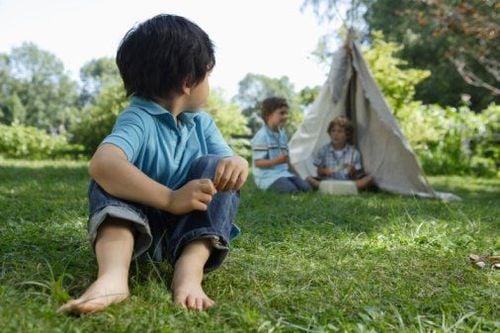This is an automatically translated article.
The article was consulted with Dr. Le Thu Phuong - Pediatrician - Neonatologist - Department of Pediatrics - Neonatology - Vinmec Hai Phong International General Hospital.Currently, the news of kidnapped children appears more and more and spreads many fears for parents. With a curious nature, children often enjoy chatting with strangers, especially preschoolers. They can start a conversation with strangers anywhere like at the grocery store, in the park or on the walk to school. Therefore, parents need to be ready to teach children skills when meeting strangers so that children can protect themselves, even when there are no adults around.
1. Choose words carefully to teach children when meeting strangers
Experts say it's best not to use the word "stranger" when referring to children. Try using the term "scammers" instead. Pattie Fitzgerald, founder of a children's safety organization called Safely Ever After, suggests: "The crooks" are adults — familiar or unfamiliar. Fitzgerald says the term is especially important because young children completely trust kind adults. “The strangers we are so afraid of are not as scary as we imagine,” she said. “They will behave in a friendly and charming manner; they'll have a cool toy or a cute puppy." A few years ago, Joey Salads, a YouTube star known for pranks and social experimentation, did an experiment that showed catching how easy it would be to kidnap a kid by an ice cream truck.After getting permission from his parents, he invited some kids to climb into his truck to get free ice cream.As the parents watched, almost all the children agreed without hesitationBetsy Brown Braun, child development and behavior expert and author of “Just Tell Me What to Say”, I think, to make sure kids know what to do, give specific situations, parents can try asking questions like: “What if an adult gave What if an adult asks you to help him find a lost puppy?” See how the child responds, then explain to them, “Similar to not having a puppy. a dog the child doesn't know, Children should not talk to people they do not know when they are not with their mother or father or another adult they trust. ”
If children wonder why they can't get the candy or look for the puppy, avoid giving explanations like “Someone might try to take you away”. Instead, the parent might say, "While most people are fine, there are some who are not and can harm children." Make an agreement to reach a general rule that children should never go anywhere, with anyone without the consent of their parents.

2. Make a plan before teaching your child skills when meeting strangers
For the preschool group, safety rules are best learned through muscle memory. Sherrill Kraizer, PhD, founder and director of the Children's Coalition in Denver and author of The Safe Kids Book shows different physical situations to help kids bond and remember well . When preparing situations, do your best to keep it light and interesting. “Because parents know what is at stake, they are often preoccupied with more serious problems than finding solutions that are good for the child,” says Dr. Kraizer.Of course, sometimes children will need strangers for help. So it's also helpful to go through the caveats for these types of special situations. Tell children that if they get lost and separated from their parents in a public place, they should first go to an employee (eg a cashier in a store, security guard, receptionist) to ask for help. help. If not, the child should find another mother with young children.
3. Teach children to trust their instincts
To teach children skills when meeting strangers, parents should also emphasize that they can trust their instincts. And that happens not only to strangers but also to those close to them because most child sexual abuse cases are committed by adults who know the child.Amber Ledergerber, a second grade teacher in Rancho Santa Margarita, California, tells her 5-year-old son and his sister, “If you start to feel weird, you should listen to him. Stay away from anyone who is making you feel this way and tell adults you trust right away.” She also keeps a list of family rules posted on her fridge, including Rule
8: “We don't keep secrets in our family. If someone tells you to keep it a secret, tell an adult."
Kristy Adams also goes out of her way to make sure her children know that their wishes matter, no matter who they're talking to. A mother of three, Adams is married to an attorney in the Marines. The family moves every few years, which has given her a unique perspective on how attitudes towards strangers vary across the country. In Northern California, it is accepted that children will not be too friendly with people they do not know. But in rural North Carolina, children are expected to be obedient and obedient to adults, whether they know the person or not, Adams said. “If someone asks for a hug, a child is obligated to hug that person.” Sometimes her kids are uncomfortable with it and adults can ignore them. In those cases, Adams tells her children to say what they feel, even if it means saying no to an adult.

Please dial HOTLINE for more information or register for an appointment HERE. Download MyVinmec app to make appointments faster and to manage your bookings easily.
References: parents.com, kidshealth.org














